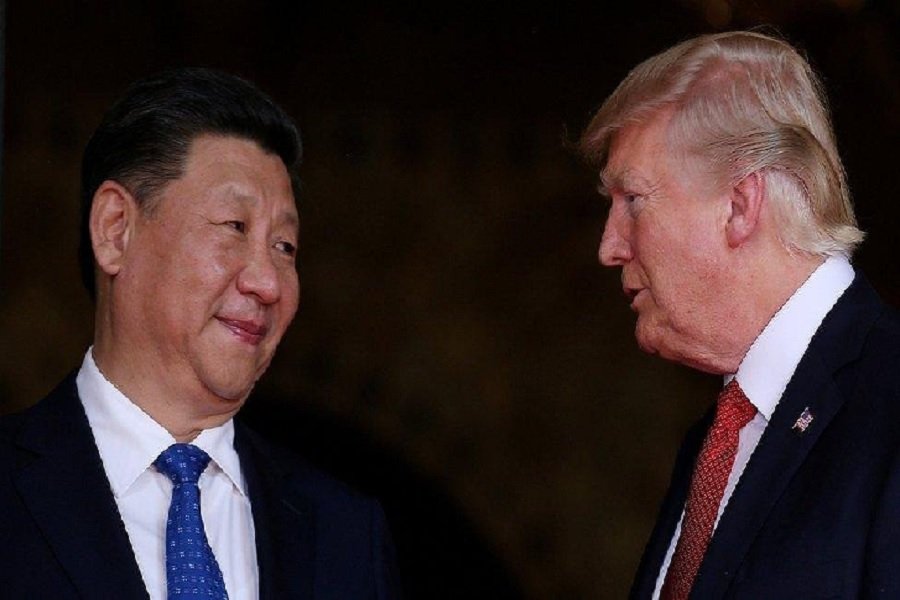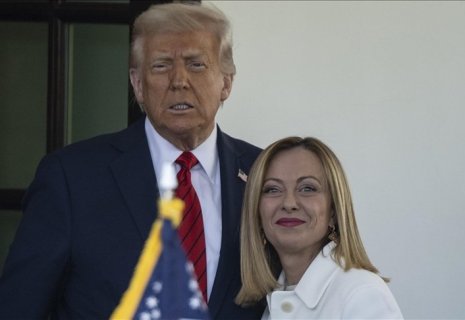
US-China trade war escalates: Who will win?
The US and China are entering a deeper trade conflict with no clear way out, while the rest of the world suffers as collateral damage.
Beijing, which feels backed against the wall by the increasingly intense tariff onslaught of the United States, is preparing for an economic war of attrition, CE Report quotes Kosova Press.
Last Sunday, Washington imposed import tariffs of at least 10% on almost the entire world, and significantly higher tariffs on countries such as Vietnam, where Chinese factories are moving production. That prompted a Chinese counter-movement, followed by new threats of escalation from US President Donald Trump.
"Whoever surrenders first will become a victim. It's about who can last the longest," said a Chinese policy adviser, who asked to remain anonymous.
In the face of Trump's threat to impose additional 50 percent tariffs on Chinese goods if Beijing does not withdraw its countermeasures against American imports, Chinese leader Xi Jinping remains defiant.
China's Commerce Department accused the US of "blackmail" on Tuesday and said Beijing was ready to "fight to the end." But, as the New York Times reports, behind this challenge lies a more complex reality for President Xi, which makes political and economic concessions to the country's largest trading partner and main rival in the fight for global influence almost impossible.
With Trump showing no intention of giving up, a devastating trade war between the world's two largest economies may be inevitable, a conflict with painful consequences that will be felt around the world, The Times magazine estimates.
The problem for Xi is that he must not show weakness, and to retaliate carries the risk of further escalation. The Chinese leader has presented himself as a national savior, which gives Beijing less room to be drawn into a conflict with Washington, as it could undermine Xi's political legitimacy.
China doesn't have many good options and will try to turn to other markets in Asia, Europe and the rest of the world, but this will hardly be a way out of the problem.
Other countries have significantly smaller markets than the U.S. and their economies are already suffering the consequences of tariffs. Many are also wary of importing cheap Chinese goods.
The European Union turned to Beijing on Tuesday for help in monitoring the wave of Chinese imports expected to flow into the EU after Trump further tightened tariffs on Chinese goods.
President Xi has long warned that China's rise is unlikely to go without resistance from the West and has invested heavily in bolstering China's self-confidence, the Times recalls.
This week, as stock markets around the world plunged, Beijing mobilized state-owned banks and investment firms, known in China as the “national team,” to ramp up purchases of Chinese stocks and stop the market from sliding further. Chinese stocks rose slightly yesterday, after a sharp drop on Monday.
Additional subsidies, export tax refunds or other incentive measures are possible, but this also carries the risk of exacerbating the problem of industrial surpluses and further driving down prices.
Chinese countermeasures, such as its own tariffs and export controls, are unlikely to have much effect, given that China exports almost three times as many goods to the US as it imports from it — about $160 billion. But if Beijing decides it can withstand more pressure than Washington, that may be its only option.
"China cannot inflict as much damage on the US as it takes because it has a large trade surplus and, if we exclude rare metals, it has even more to lose by imposing export restrictions. But that is no longer the case. The signal that Beijing is sending with its moves is that it will oppose American efforts for dominance and is prepared to engage in a war of economic destruction," said Arthur Kroeber, director of research at Gavekal.
Part of China's strategy is to exploit the chaotic fallout from Trump's tariffs in an attempt to pull the rest of the world out of America's orbit of influence.
According to media reports, Xi plans to visit Southeast Asian countries, including Vietnam, next week.
Beijing has tried to present a united front with Japan and South Korea against the Trump tariffs, although officials in Tokyo and Seoul, which rely on the US for security, have distanced themselves from China's stance.
As Washington and Beijing try to inflict as much damage on each other as possible, and the rest of the world suffers as collateral damage in their trade war, it is hard to imagine what a grand de-escalation deal would look like.
Economists believe that Trump's goal of balancing trade with China is unattainable in the short and medium term, given that one side is the world's leading producer, while the other is the largest consumer.
If a quick agreement remains out of reach, everything could turn into a battle of political wills in which, according to some analysts, Beijing has the advantage.























